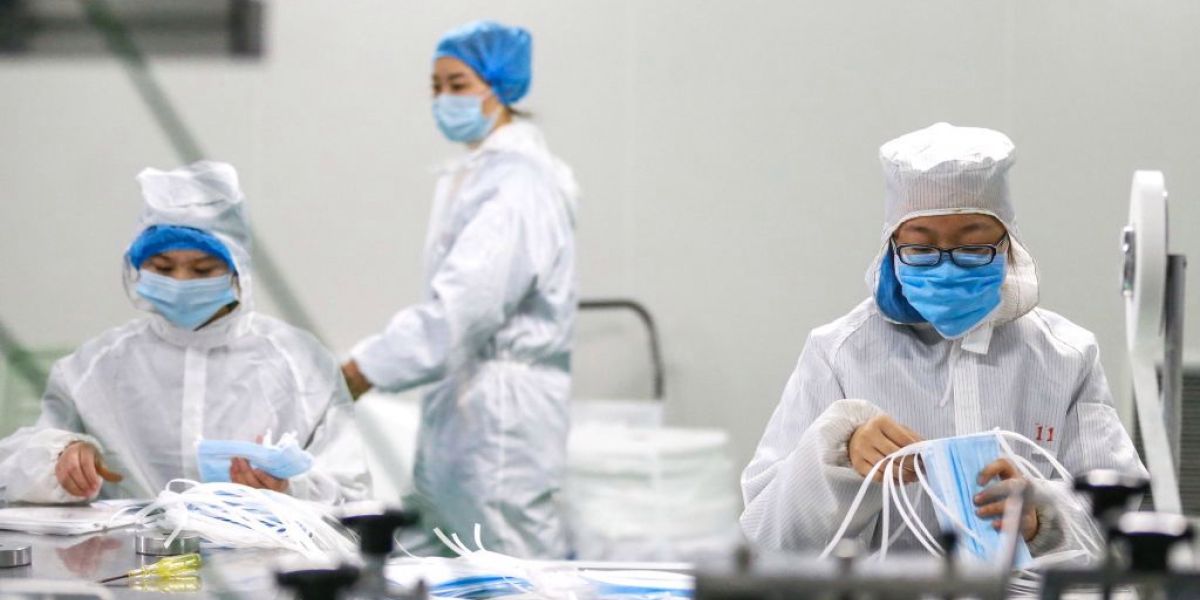Startup based in Rockville says it has used artificial intelligence to rapidly identify molecules that could form the basis of an effective treatment against the coronavirus at the heart of the current outbreak.
Copyright by fortune.com
 It took Insilico’s A.I.-based system four days to identify thousands of new molecules that could be turned into potential medicines against the virus. Insilico says it will synthesize and test 100 of the most promising candidates, while publishing the full library of new molecular structures it has generated for other researchers to possibly use.
It took Insilico’s A.I.-based system four days to identify thousands of new molecules that could be turned into potential medicines against the virus. Insilico says it will synthesize and test 100 of the most promising candidates, while publishing the full library of new molecular structures it has generated for other researchers to possibly use.
The global health emergency over the spread of the deadly new coronavirus, known as 2019-nCoV, is proving to be a crucial real-life test case for a host of new biomedical technologies, as well as new organizations and funding bodies, that aim to dramatically reduce the time it takes to create new vaccines and drugs to combat emerging pandemics.
The idea is to find and test new treatments, putting them into human clinical trials in as little as a week or two, as opposed to the years it might otherwise take. U.S.-based biotechnology firm Gilead struck a deal earlier this week with a Beijing hospital to begin immediate human testing of an existing antiviral drug, remdesivir, in Wuhan, the heart of the coronavirus outbreak.
Insilico only decided to see if it could come up with interesting leads for a new 2019-nCoV treatment on Jan. 28, Alex Zhavoronkov, the company’s founder and chief executive officer, says. “When the virus outbreak started, we didn’t realize it was serious,” he says.
Once it decided to get involved, Zhavoronkov says, the company studied the long list of possible targets for a 2019-nCoV treatment that have been published by the Beijing-based Global Health Drug Discovery Institute. It decided to go after an enzyme, called 3C-like protease, that is critical for the coronavirus’s reproduction.
Zhavoronkov says Insilico picked this target, in part, because it is similar to other viral proteases whose structures were previously mapped and because it had access to a model of the 2019-nCoV 3C-like protease itself that had been developed by Zihe Rao, a well-known expert on virus protein structures at Shanghai Tech University.
Beginning on Jan. 31, Insilico began using 28 different machine learning models to design new small molecules that might bind to the 3C-like protease and inhibit its functioning.
Thank you for reading this post, don't forget to subscribe to our AI NAVIGATOR!
Some of these techniques employ generative adversarial networks (or GANs), the same kind of machine learning that is best known for creating deepfakes. In this case, instead of producing highly-realistic, fake videos, the A.I. generates new molecules that will form the right structure to bind with the protease. […]
Read more – fortune.com


Startup based in Rockville says it has used artificial intelligence to rapidly identify molecules that could form the basis of an effective treatment against the coronavirus at the heart of the current outbreak.
Copyright by fortune.com
The global health emergency over the spread of the deadly new coronavirus, known as 2019-nCoV, is proving to be a crucial real-life test case for a host of new biomedical technologies, as well as new organizations and funding bodies, that aim to dramatically reduce the time it takes to create new vaccines and drugs to combat emerging pandemics.
The idea is to find and test new treatments, putting them into human clinical trials in as little as a week or two, as opposed to the years it might otherwise take. U.S.-based biotechnology firm Gilead struck a deal earlier this week with a Beijing hospital to begin immediate human testing of an existing antiviral drug, remdesivir, in Wuhan, the heart of the coronavirus outbreak.
Insilico only decided to see if it could come up with interesting leads for a new 2019-nCoV treatment on Jan. 28, Alex Zhavoronkov, the company’s founder and chief executive officer, says. “When the virus outbreak started, we didn’t realize it was serious,” he says.
Once it decided to get involved, Zhavoronkov says, the company studied the long list of possible targets for a 2019-nCoV treatment that have been published by the Beijing-based Global Health Drug Discovery Institute. It decided to go after an enzyme, called 3C-like protease, that is critical for the coronavirus’s reproduction.
Zhavoronkov says Insilico picked this target, in part, because it is similar to other viral proteases whose structures were previously mapped and because it had access to a model of the 2019-nCoV 3C-like protease itself that had been developed by Zihe Rao, a well-known expert on virus protein structures at Shanghai Tech University.
Beginning on Jan. 31, Insilico began using 28 different machine learning models to design new small molecules that might bind to the 3C-like protease and inhibit its functioning.
Thank you for reading this post, don't forget to subscribe to our AI NAVIGATOR!
Some of these techniques employ generative adversarial networks (or GANs), the same kind of machine learning that is best known for creating deepfakes. In this case, instead of producing highly-realistic, fake videos, the A.I. generates new molecules that will form the right structure to bind with the protease. […]
Read more – fortune.com
Share this: